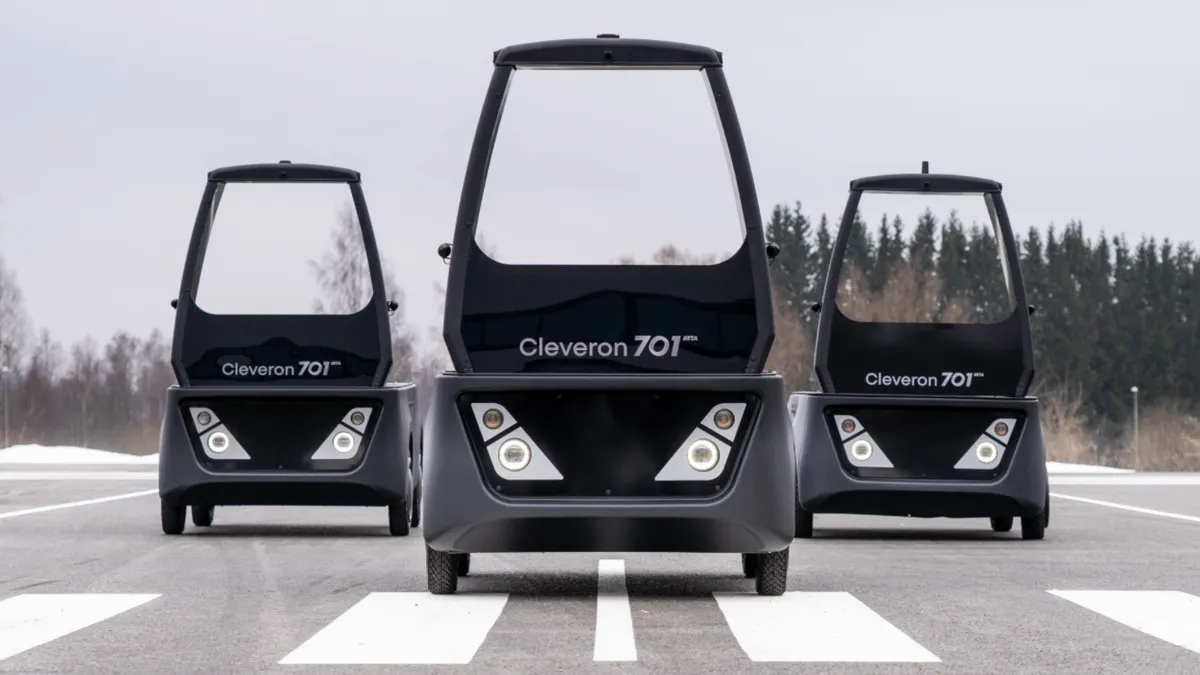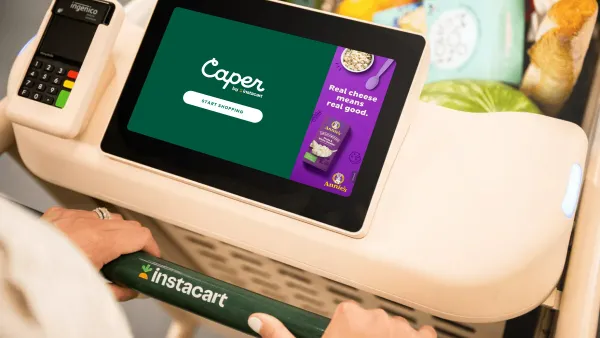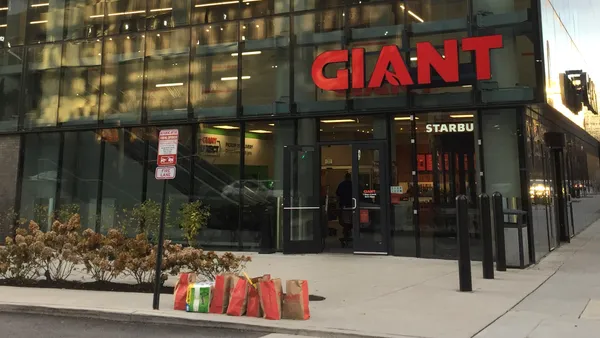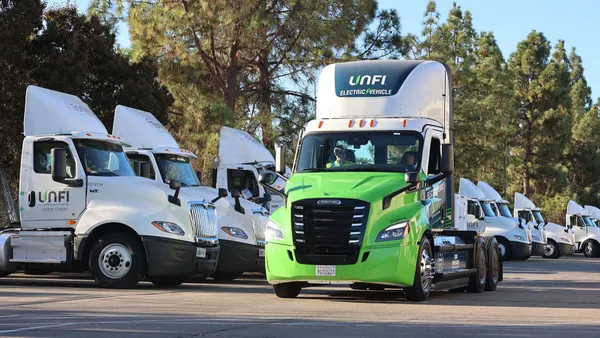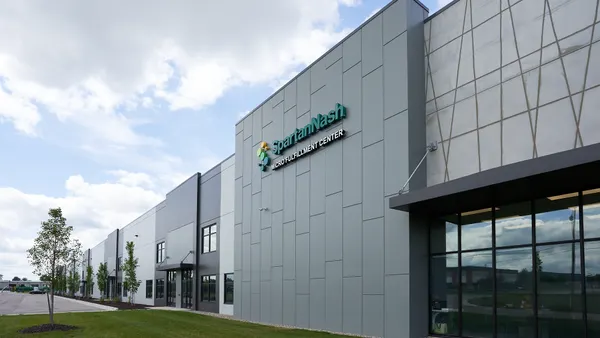Dive Brief:
- Estonian technology firm Cleveron, which specializes in last-mile parcel lockers and robots, unveiled on Wednesday a driverless, semi-autonomous delivery vehicle.
- Roughly half the size of a sedan, the delivery robot, called the Cleveron 701, can carry up to 500 pounds and travel within a 30-minute range of the warehouse or store at a maximum speed of 30 miles per hour. Teleoperators will be able to remotely supervise up to 10 vehicles at a time as they traverse low-traffic areas and roads.
- Cleveron’s announcement of the driverless vehicles comes at a time when grocers are increasingly testing robots for grocery delivery.
Dive Insight:
The new driverless delivery vehicles add to Cleveron’s list of click-and-collect technology, which includes pickup lockers and towers, a parcel automation solution and a self-service pickup kiosk.
The Cleveron 701 is a modifiable delivery vehicle that can store hot or cold food and beverages in temperature-controlled sections, operate as a parcel vehicle or serve as a mobile food stand for things like coffee or ice cream. The distance the Cleveron 701 can travel depends on the power level of the battery that is installed, according to a company spokesperson.
Cleveron, which says it is the first company granted a pilot license in Europe to have driverless vehicles hit public streets, has been testing the Cleveron 701 for the last six months in Estonia, according to the announcement. The driverless delivery robot is compatible with places that have relatively low amounts of traffic, according to the company.
While Cleveron CEO Arno Kütt said pickup will still remain key for the company, diving into driverless vehicles is a way to address problems with delivery times and costs.
"Consumers want speed and convenience, but it comes with a cost," Kütt said in the announcement. "With driverless delivery, you can cut the last mile labor cost. There will also be less failed deliveries, since the 701 can be deployed from the local dark store quickly."
Mass production of the Cleveron 701 is expected to start in 2023 — the same year that commercial operations are slated to begin for autonomous vehicles called Transporters that were born from a partnership between Jerusalem-based Mobileye, which is an Intel subsidiary focused on self-driving systems, and California-based Udelv, which builds autonomous vehicles.
The driverless delivery vehicle space is increasingly gaining traction as companies turn to it as a last-mile solution. Across the U.S., robots are rolling out as a way to reach people in food deserts and cut labor costs for delivery.
In 2019, both Walmart and Kroger announced tests of driverless delivery vehicles from Nuro in Houston. After nabbing $500 million in new funding late last year, Nuro received the first autonomous vehicle deployment permit in December in its home state of California, Autoweek reported.
Walmart, which announced in November that it also planned to test autonomous electric vehicles from self-driving car company Cruise, said Thursday that is making an unspecified investment in the company. "With their all-electric fleet powered by 100% renewable energy, Cruise is a natural partner as we work to take collective action on climate change," Walmart U.S. President and CEO John Furner, said in a post on the retailer's website.
Last summer, robotics company Refraction AI teamed up with The Produce Station, an independently owned grocer in Ann Arbor, Michigan, to offer autonomous robot delivery. Earlier this year, San Francisco-based Starship Technologies raised $17 million in new funding as it looks to expand its college campus partnerships.
Cleveron, which works with several grocers across the world, has already established click-and-collect partnerships with Albertsons and Walmart in the U.S.



